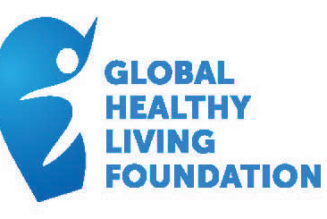Grants awarded for evaluating middle school student nutrition and physical activity as well as and Produce Prescription programs, among others
COLLEGE STATION, Texas , May 23, 2023 /PRNewswire/ — New research initiatives at the Texas A&M Institute for Advancing Health Through Agriculture (IHA) have received more than $2 million in funding to support social and behavioral healthy living research.
The researchers’ projects aim to improve physical activity and healthy eating habits while promoting positive youth development, especially in economically disadvantaged middle schools. Another project will look at how community cafes – non-profit restaurants that use a pay-what-you-can system – influence healthy diets and food security.
IHA researchers Rebecca Seguin-Fowler , Ph.D.; Alexandra L. MacMillan Uribe , Ph.D.; Jacob S. Szeszulski , Ph.D. and Chad Rethorst , Ph.D. have received funding from four sources: the National Institutes of Health (NIH), the U.S. Department of Agriculture (USDA), Downstate Health Sciences University and Texas A&M AgriLife Research (Hatch grants).
Patrick Stover , Ph.D., director of the IHA, said the newly awarded grants reflect the importance of the Institute’s forward-looking work.
“It’s our mission to reduce diet-related chronic diseases and consequently healthcare costs through the power of agriculture in a way that considers the environment and our economy,” said Stover. “Doing so requires community-engaged multisector partnerships, as exemplified in this new portfolio of funded projects across the IHA Healthy Living research team.”
Strong Teens for Healthy Schools
Among the awards is a project led by MacMillan Uribe , Szeszulski and colleagues, titled, “Strong Teens for Healthy Schools Change Club: A Civic Engagement Approach to Improving Physical Activity and Healthy Eating Environments.” MacMillan Uribe and Szeszulski were granted more than $300,000 annually for the next five years from NIH’s National Center on Minority Health and Health Disparities. Seguin-Fowler and Rethorst serve as co-investigators on the team. Working in partnership with Cooperative Extension as well as 4-H staff, school educators and middle school students, this project will refine the Strong Teens curriculum for delivery and evaluate its effectiveness in improving physical activity, nutrition and positive youth development-related behaviors and environmental outcomes in economically disadvantaged middle schools.
Produce Prescriptions for Healthy Blood Pressure
MacMillan Uribe and colleagues, including Seguin-Fowler who serves as associate director for Healthy Living at the IHA, were awarded $500,000 from the USDA National Institute of Food and Agriculture as part of its Gus Schumacher Nutrition Incentive Grant Program (GusNIP). GusNIP focuses on programs that seek to improve dietary health and food security through the consumption of fresh produce as well as reducing the need and consequential costs of healthcare use.
MacMillan Uribe’s project, “The Produce Prescription for Healthy Blood Pressure Program to Manage Hypertension Among West Dallas, Texas Residents,” will run through September 2025 .
“The goal of this project is to understand whether a produce prescription program can improve blood pressure levels among adults with hypertension living in West Dallas, Texas , a largely underserved community,” said Dr. MacMillan Uribe . “We anticipate that blood pressure levels and the frequency and cost of using healthcare will decrease.”
Additional Awards
MacMillan Uribe was also awarded $12,000 from the Program to Increase Diversity Among Individuals Engaged in Cardiovascular Health-Related Research team (PRIDE-CVD) at Downstate Health Sciences University in New York . In collaboration with Szeszulski and Lori Borchers , Ph.D. at Texas Christian University , this project will look specifically at community cafes, which are non-profit restaurants that operate on a pay-what-you-can system. They are hoping to learn more about how these community cafes influence food security and diet quality among patrons with food insecurity.
Texas A&M AgriLife Research (Hatch awards) were also granted to Szeszulski, MacMillan Uribe and Rethorst, totaling $35,000 . This support will enable them to conduct data analyses on existing projects so they can apply for additional grants that support the mission of Healthy Living to promote health, reduce chronic disease and advance health equity through the development, evaluation and dissemination of community-engaged intervention programs.
About Texas A&M Institute for Advancing Health Through Agriculture
The IHA relies on funding from federal, state and other entities to achieve its mission. Objectives include advancing research, knowledge and practice as well as informing science-based policy that connects and enhances human, environmental and economic health, resiliency, sustainability and prosperity across the Ag-Food-Health value chain. The IHA aims to be a model nationally for positioning agriculture as the solution to problems in human and environmental health and economic prosperity. The IHA is a statewide program of The Texas A&M University Systems and is headquartered at Bryan-College Station . Learn more about the IHA at iha.tamu.edu .
Contact:
Kendall Bassett
Texas A&M University
Institute for Advancing Health Through Agriculture
kendall.bassett@ag.tamu.edu
![]() View original content: https://www.prnewswire.com/news-releases/institute-for-advancing-health-through-agriculture-awarded-2-million-in-funding-to-support-social-and-behavioral-healthy-living-research-301831480.html
View original content: https://www.prnewswire.com/news-releases/institute-for-advancing-health-through-agriculture-awarded-2-million-in-funding-to-support-social-and-behavioral-healthy-living-research-301831480.html
SOURCE Texas A&M AgriLife Institute for Advancing Health Through Agriculture









